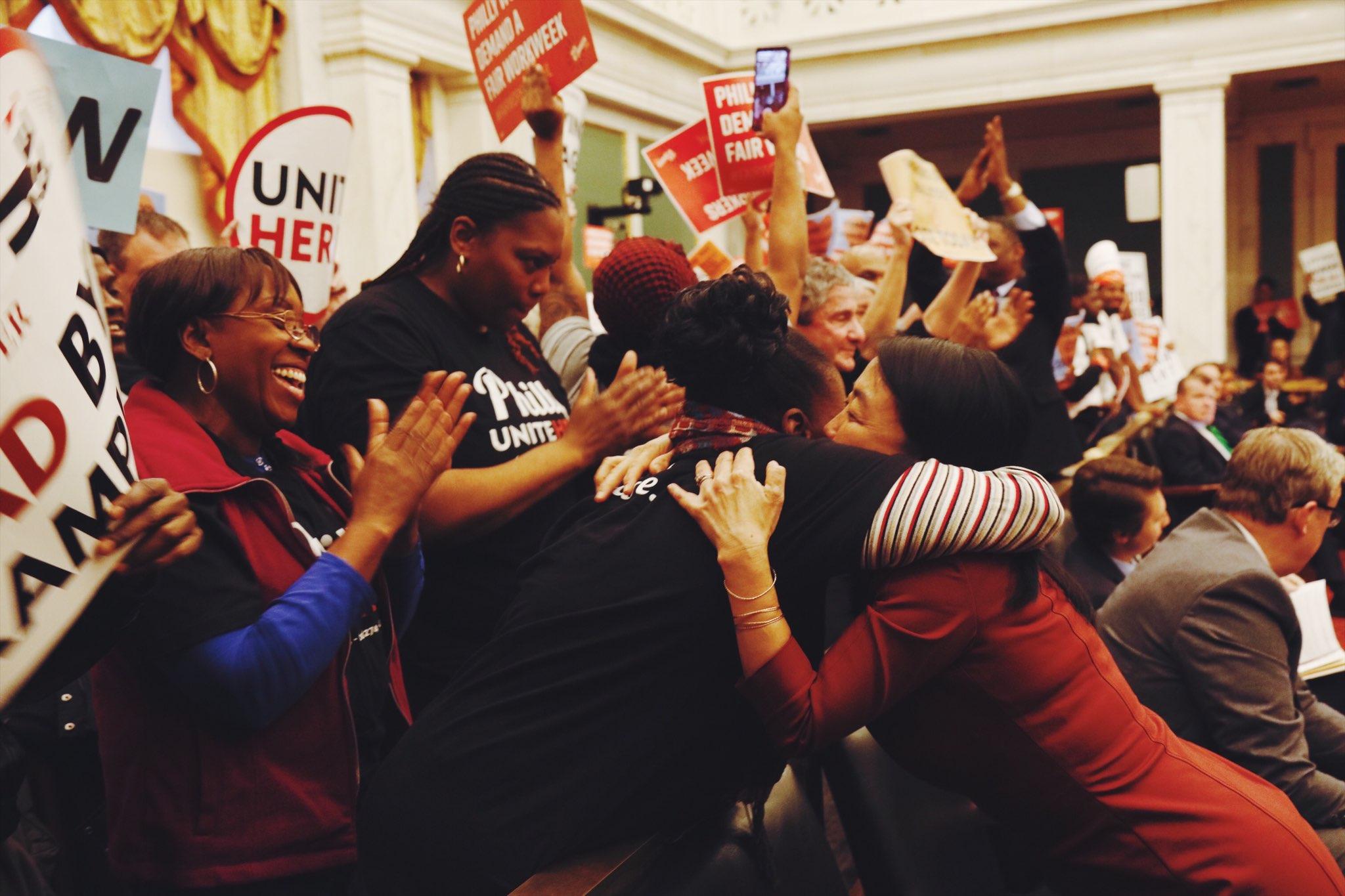
Philly passes Fair Workweek law, raises minimum wage
Calling it an “economic dignity package,” Councilwoman Helen Gym said it was important that Philadelphia took the lead in passing both the Fair Workweek and…
On Thursday, Philadelphia’s City Council voted to expand workers’ scheduling rights, and to increase the city's minimum wage to $15 an hour by 2022.
Introduced by Councilwoman Helen Gym in June, the Fair Workweek bill passed by a 14-3 margin, with the Council’s three Republicans all voting against.
The legislation establishes parameters to ensure that the estimated 130,000 employees of major chains in the fast food, retail and hospitality sectors have more certainty surrounding their schedules. This means advance notice of shifts, compensation for last-minute changes to schedules, and notification of more available shifts to earn more money, among other measures.
“It’s hard to imagine, in a city with such high poverty, that so many of those that are impoverished are already working jobs, but they’re working jobs that are extremely unstable, where their schedules are so volatile they can’t even predict their weekly rents,” Councilwoman Gym told AL DÍA.
According to figures provided by the Washington, D.C.-based Center for Popular Democracy, 58 percent of Hispanic workers, and 55 percent of black workers “have no say” in their work schedules. In addition, 41 percent of “early career adults” receive their schedules “one week or less in advance.”
“It’s a common sense set of protections that are smart for workers, smart for business and smart for our city,” Gym added.
Philadelphia, we have a Fair Workweek. #FairWorkWeekPHL pic.twitter.com/QEl7NKzVvg
— Helen Gym (@HelenGymAtLarge) December 6, 2018
Immediately following their passage, Mayor Jim Kenney released a statement affirming his intention to sign both the fair workweek and minimum wage bills into law.
“The Fair Work Week and Minimum Wage bills will go a long way to ensuring that our hard-working residents have the dignity of stable employment and a steady schedule,” Kenney said.
RELATED CONTENT
Once signed by the mayor, the Fair Workweek legislation will go into effect in a little over a year, on January 1, 2020.
The minimum wage, meanwhile, will rise incrementally until it hits $15 an hour in 2022. The increase applies to city workers, who currently must earn $12.20 an hour at minimum.
Calling it an “economic dignity package,” Gym said it was important that Philadelphia took the lead in passing both the Fair Workweek and minimum wage bills.
Both the federal and the Pennsylvania minimum wage currently stands at $7.25 an hour, for instance, and just a handful of cities nationwide, including New York City, Washington, D.C. and Seattle, have passed fair workweek measures.
As for Councilwoman Gym, she’s not finished working on what she calls her anti-poverty agenda.
“Fair workweek and the higher minimum wage are just the start,” she said. “I think people spoke today about a growing movement against poverty, against income inequality, and a vision for a shared prosperity, for everybody, not just for the most privileged few.”











LEAVE A COMMENT: